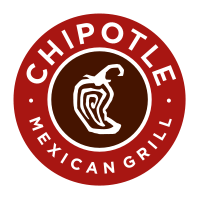 Chipotle Mexican Grill is looking to dodge a proposed class action lawsuit accusing the restaurant chain of “purposefully misrepresenting” that its food does not contain organisms that have been genetically modified.
Chipotle Mexican Grill is looking to dodge a proposed class action lawsuit accusing the restaurant chain of “purposefully misrepresenting” that its food does not contain organisms that have been genetically modified.
On Friday, Chipotle submitted a 23-page request for summary judgment asking that a Florida federal court judge dismiss the lawsuit on grounds that the plaintiff was not deceived regarding what she purchased and she did not pay a premium price for it.
According to Chipotle’s motion to dismiss allegations that it deceptively advertised its food as non-GMO, the company argues that plaintiff Leslie Reilly lacks standing under Florida’s Deceptive and Unfair Trade Practices Act because she received from Chipotle exactly what she expected.
Chipotle further contends that no reasonable consumer would believe that ingredients sourced from animals that may have consumed GMO feed are themselves GMOs.
“Plaintiff cannot establish that the reasonable consumer would believe that meat and dairy ingredients sourced from animals that have consumed GMO feed are, or contain, GMOs,” the restaurant chain said. “Accordingly, plaintiff cannot demonstrate that Chipotle has violated the [Florida Deceptive and Unfair Trade Practices Act] by making representations allegedly inconsistent with that belief.”
Moreover, Reilly “cannot establish that any allegedly deceptive practice caused her harm or led to Chipotle’s being unjustly enriched,” the company argued. Since Reilly – who had been purchasing burritos containing chicken and cheese approximately once per month since February or March 2010 – reviewed Chipotle’s Ingredient Statement in April 2015 and continued to purchase food, her claims of unjust enrichment fail.
After Chipotle announced last year that it had reformulated its menu to be void of any genetically engineered ingredients, some consumers said that statement was misleading as the chain still served products derived from animals who were raised on genetically engineered grains such as corn and soy.
Reilly sued Chipotle in September 2015, explaining that she paid a “premium price” for Chipotle’s food only because she believed it did not contain GMOs, or genetically modified organisms.
While the Denver-based chain claims on its website that it is the first national restaurant company “to cook only with non-GMO ingredients,” it also acknowledges that the meat and dairy served at its restaurants are likely to come “from animals given at least some GMO feed.”
But Reilly’s complaint alleges that “meat and dairy products that come from animals that consume GMO feed are in fact GMO products.” The lawsuit also says Chipotle’s marketing of its food as containing only non-GMO ingredients constitutes “unfair and deceptive practices.”
Chipotle began voluntarily disclosing the presence of GMOs in its food in 2013. The restaurant chain often touts the tagline, “Food with Integrity.”
“In 2015, we succeeded in our quest to switch to serving food made only with non-GMO ingredients,” the company states on its website. Chipotle explains that its meat and dairy products come from animals that are not genetically modified, but that “most animal feed in the U.S. is genetically modified,” according to its website.
Chipotle explains on its website that it’s “working hard” on sourcing meat and dairy exclusively from animals that are not raised on GMO feed.
The company also notes that many of the beverages it sells contain GMOs, including those with high fructose corn syrup, “which is almost always made from GMO corn.”
In April, both sides of the case argued about the definitions of GMOs, but U.S. District Court Judge Marcia G. Cooke refused to grant Chipotle’s motion to dismiss the case at that time, stating that “more evidence is needed to establish both a definition of the term and whether a reasonable consumer would share Ms. Reilly’s interpretation of the term.”
Reilly’s lawsuit is similar to one recently dismissed in February in California that had claimed Chipotle misled customers by advertising that it prepares its food using “only non-GMO” ingredients. However, that lawsuit was dismissed by U.S. District Court Judge Haywood S. Gilliam Jr. after the plaintiff decided to withdraw.
Reilly is represented by Lance A. Harde, Sarah Clasby Engel and Howard M. Bushman of Harke Clasby & Bushman LLP.
The Chipotle Non-GMO Class Action Lawsuit is Reilly v. Chipotle Mexican Grill Inc., Case No. 1:15-cv-23425, in the U.S. District Court for the Southern District of Florida.
UPDATE: On Aug. 8, 2016, the plaintiffs tried to convince a judge to require Chipotle to submit internal documents for review.
ATTORNEY ADVERTISING
Top Class Actions is a Proud Member of the American Bar Association
LEGAL INFORMATION IS NOT LEGAL ADVICE
Top Class Actions Legal Statement
©2008 – 2026 Top Class Actions® LLC
Various Trademarks held by their respective owners
This website is not intended for viewing or usage by European Union citizens.















One thought on Chipotle Tries Again to Dodge Non-GMO Class Action Lawsuit
UPDATE: On Aug. 8, 2016, the plaintiffs tried to convince a judge to require Chipotle to submit internal documents for review.